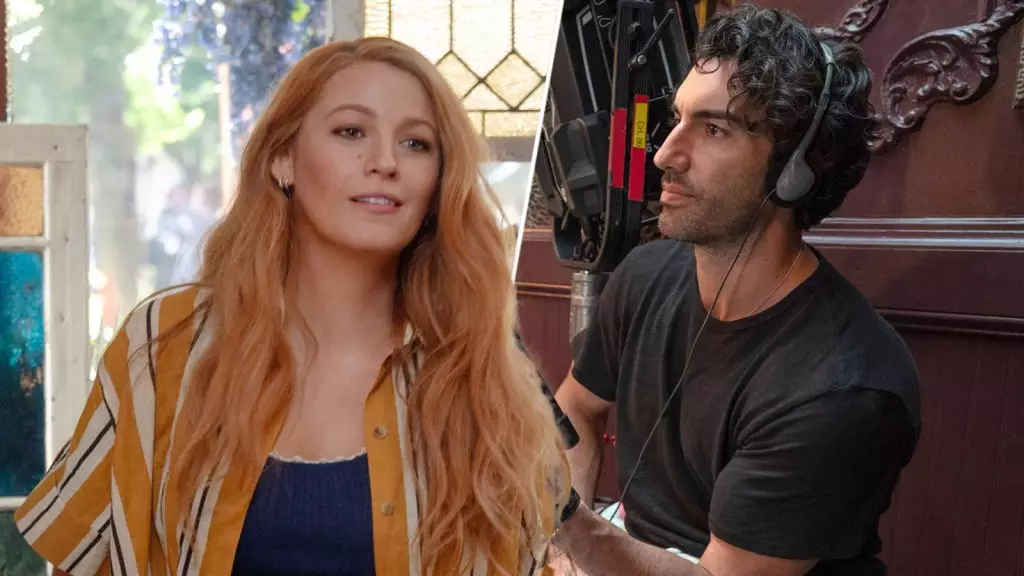The entertainment world is often marred by discord, tension, and turmoil, but it faces a particularly significant disruption with Blake Lively’s recent lawsuit against Justin Baldoni. This lawsuit not only highlights the ongoing struggles within Hollywood concerning workplace conduct but also illustrates the cascading impact such allegations can have on careers and personal lives.
In a sprawling legal complaint filed against Baldoni and his production company, Wayfarer Studios, Lively asserts claims of sexual harassment and psychological retaliation. The fallout from these alleged actions is not just confined to Lively’s personal distress; it extends to her professional obligations as well, resulting in the cancelation of appearances that should have marked high-profile moments in her career. Notably, Lively withdrew from hosting the premiere of Saturday Night Live’s 50th season, a decision reportedly influenced by fears that engaging in public events would force her to discuss the distressing incidents that allegedly transpired on set. This shift in her career trajectory underscores the personal burdens that often accompany public allegations.
The ongoing narrative has escalated since the lawsuit was filed with the California Civil Rights Department, with Lively’s defense revolving around her right to speak out against workplace misconduct. The suit unfolds details of Baldoni’s purported behavior during the filming of the movie adaptation of Colleen Hoover’s novel, including unsavory comments and behavior that left Lively feeling vulnerable. The complaint paints a troubling portrait of an environment rife with impropriety, culminated by Baldoni’s alleged dismissive attitude towards Lively’s concerns about feeling objectified and uncomfortable.
As the lawsuit alleges a “sophisticated press and digital plan” orchestrated by Baldoni and his associates in retaliation for Lively’s complaints, it opens a dialogue about the extent to which workplace harassment can lead to a chilling effect on victims seeking justice. Incidents like these tend to create a ripple effect, where the fallout not only jeopardizes the victim’s career but sends a stark message to others contemplating similar actions. Lively’s situation is a reminder of the vulnerability that comes with speaking out, especially against powerful individuals within a highly scrutinized industry.
Furthermore, the exchange of communications between Baldoni and PR consultants, as outlined in the complaint, reveals how crises in Hollywood are managed with strategic messaging aimed at shaping public perception. The intervention of crisis PR professionals indicates a calculated approach to damage control that often prioritizes reputation over accountability. This raises important ethical questions about how narratives are constructed in the media and the industry’s responsibility to prioritize safety and integrity over public image.
The legal battle has already had tangible consequences, including Baldoni’s removal from his agency representation at WME, which also represents Lively. This sudden shift signifies the severity of the allegations and their potential repercussions on Baldoni’s career moving forward. Significant support from figures like Colleen Hoover, who praised Lively’s honesty and integrity, reinforces Lively’s position and has the potential to further rally public sympathy in her favor.
From the perspective of women’s rights and workplace equity, Lively’s lawsuit serves as a crucial case study, contributing to the broader discourse surrounding the Me Too movement and systemic issues in Hollywood. It encapsulates the interconnectedness of personal stories of harassment with the industry-wide call for accountability. As more stories like Lively’s surface, the hope remains that these revelations will foster deeper changes within the environment in which many actors and industry professionals operate.
The eventual outcome of Lively’s lawsuit remains to be seen, yet its implications extend beyond her personal experience. It serves as a poignant reminder of the importance of speaking out and the necessary evolution within the film and television industry. By confronting these incidents, victims like Lively contribute to a culture that prioritizes respect and safety, crucially shifting the narrative from silence to accountability. Ultimately, it may inspire further discussions on the systemic changes needed to cultivate a healthier workplace environment for everyone in the creative arts.
